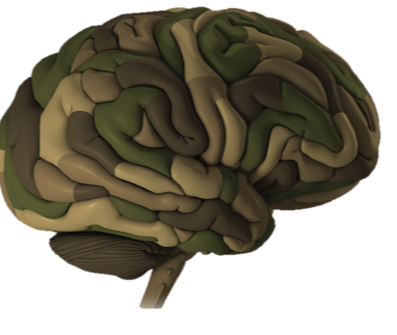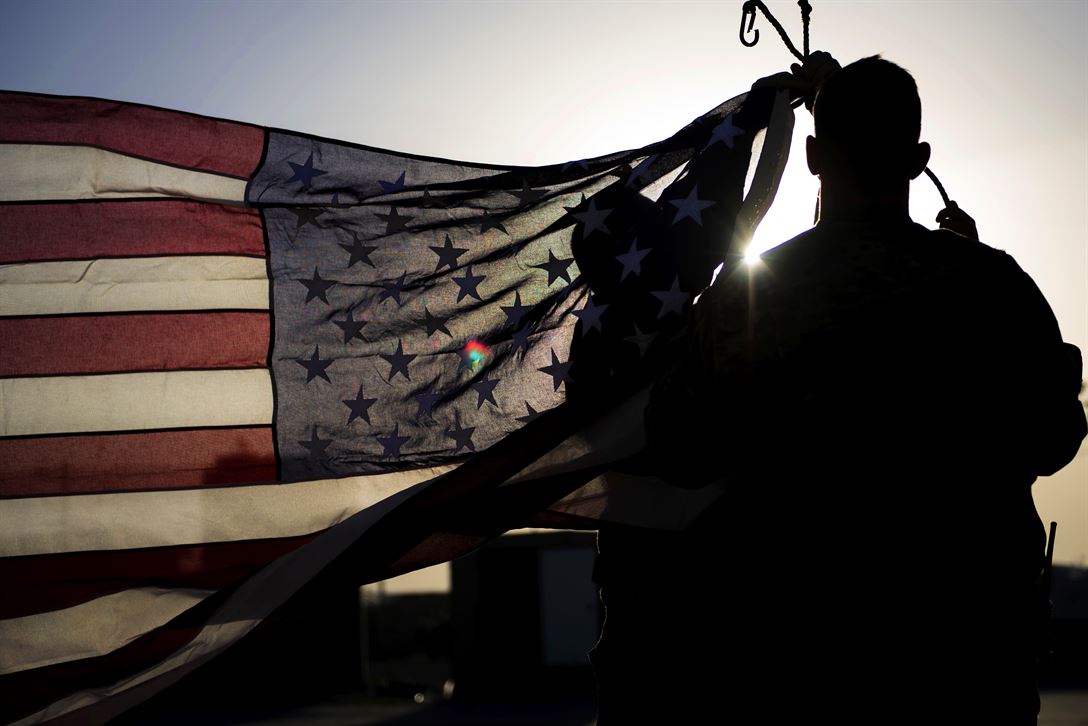
It’s been a couple of years since I’ve been banging the gong about veteran mental health. It’s not uncommon for me to bring it up in the first few minutes of a conversation; it doesn’t take long to realize where I stand on the issue. “Veteran Mental Health” is quicker to come out of my mouth than a business card out of my hand. The challenge, though, is that I still get the feeling that the message may not be penetrating.
Here is my message, as plainly as I can deliver it: Veteran Mental Health goes beyond just PTSD and TBI. It is a foundational aspect of success in post-military life. Organizations working with veterans should take it into consideration when talking to veterans about their transition plans. Instead, we treat it as an afterthought, something considered when everything else doesn’t work.
In my opinion, one of the problems is a lack of understanding of the complexities of veteran mental health. Service members, veterans, and their families don’t understand it clearly. Those who haven’t served only understand it from how it’s presented. Those who do understand and are trying to serve find themselves between a rock and a hard place. The rock: the seemingly endless narrative of the broken veteran. The hard place: the very real needs of the largest cohort of combat veterans since WWII. The problem isn’t going anywhere; a recent survey conducted by the Cohen Veterans Network found that the barriers and stigma around veteran mental health aren’t going anywhere.
A solution: we need to start looking at Veteran Mental Health as foundational rather than an afterthought. Yes, it includes the bad…PTSD, TBI, and much, much more. It also includes the great: posttraumatic growth, Resilience, and the very real probability that this generation of Veterans is going to shape this century like the WWII generation shaped the last one. Often, I think, when I talk about “veteran mental health” the message is “all veterans should be in therapy” which translates into “all veterans are crazy.” The first is not a fair interpretation of the message, and the second is certainly not true. One of the ways to help change that is to bring mental health professionals into the conversation.
Mental Health Professionals Must Be Included In Transition Conversations
If a community is having a conversation about veteran mental health, and those who have a level of expertise in that field aren’t talking…or, if they are talking but few are listening…then a critical piece of the conversation is missing. Often, I have had conversations with people in the community about mental health, often people in charge of making decisions about it, and there are no mental health professionals in the room.
In my conversation with Dr. Heather Kelly on the Head Space and Timing Podcast, she recounted a similar story. In a large meeting of congressional staffers in Washington D.C. that were there to discuss posttrauamtic stress disorder, she quickly realized that not only was she the only person in the room with experience in treating PTSD, but was one of the few in the room that had any connection to the military. When we talk about veteran mental health, and mental health professionals aren’t in the room, then any solution that is developed is an imperfect one.
Mental Health Professionals Have A Responsibility to Join the Discussion
At the same time as the community bringing in mental health professionals, mental health professionals can and should engage in the community. One of the things that I have seen over the past several years is that mental health professionals, me included, have a tendency to sit back and wait for veterans to come to us. We know that what we have to offer works. We also forget that we need to convince others that it works. Often, we don’t know how to sell it; the industry as a whole doesn’t have very good PR.
Another thing I’e noticed about the industry: we’re not comfortable talking about what we do. Much of that has to do with confidentiality and the sensitive nature of our subject. It also has to do with the fact that it is an industry of introverts. That comes from personal observation, and not research, but the fact is that many of us, again me included, are much more comfortable having deep, meaningful conversations with individuals and small groups. We are much less comfortable engaging in the small talk and networking that is necessary to advocate for a message.
Get Advice from Proven Experts, Not Professed Experts
When I talk about a level of expertise, I’m talking about those who have studied it, and continue to do so. Those who have been able to prove, through testing and accreditation, that they understand mental health. Very often, I see and hear others who talk about mental health and wellness without any specific credentials or degree. It is often those who have experienced a life stressor and have come through the other side of it; that’s great, and important. Peer support is a critical component of mental health, in my opinion.
It’s when someone uses their experience but not expertise as a badge of honor that things go a little off. There are those that are actually proud of the fact that they’re a mental health professional. That it gives them a greater legitimacy than those who haven’t. Psychology is a strange thing; so many people are interested in it, and so many people feel as though they are experts in it because they read a book or watched a movie. Other situations aren’t like that; if I have a broken leg, I don’t go to my cousin for advice about what to do; I go to the emergency room. We tend to do the opposite of that when it comes to mental health and wellness.
So there you have it. To understand the complexities of veteran mental health, as someone who studies it and practices it. Include mental health professionals in the conversation. Involve yourself in the conversation, If you’re a mental health professional. As for me, I’m going to continue to do my part to change the way we think about Veteran Mental Health. It ain’t pretty, and it ain’t perfect, but it has to be done.
 The Head Space and Timing Blog is supported by the Colorado Veterans Health and Wellness Agency, a 501(c)3 Nonprofit in Colorado Springs, Colorado. The goal of the CVHWA is to provide military culturally competent mental health counseling to veterans and their spouses, regardless of characterization of discharge, time of service, or era of service. Our vision is to assist veterans to identify and remove barriers to their mental, physical, emotional, and behavioral wellness. For questions or inquiries, contact us!
The Head Space and Timing Blog is supported by the Colorado Veterans Health and Wellness Agency, a 501(c)3 Nonprofit in Colorado Springs, Colorado. The goal of the CVHWA is to provide military culturally competent mental health counseling to veterans and their spouses, regardless of characterization of discharge, time of service, or era of service. Our vision is to assist veterans to identify and remove barriers to their mental, physical, emotional, and behavioral wellness. For questions or inquiries, contact us!


